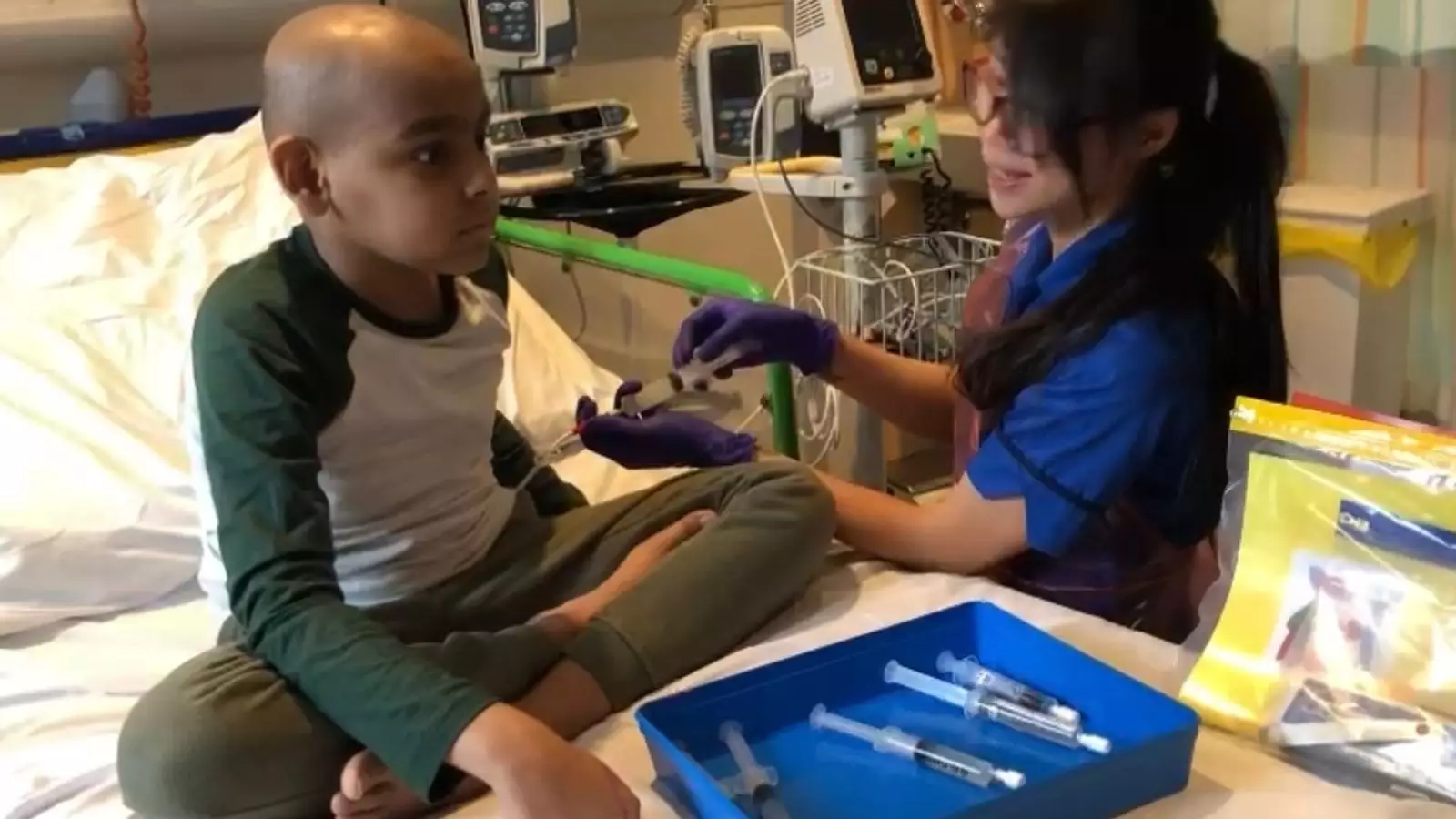The recent development of fast-track access to newly approved NHS drugs has provided significant opportunities for cancer patients, with nearly 100,000 individuals benefiting from this initiative. One such beneficiary, 16-year-old Yuvan Thakkar, received a groundbreaking CAR-T therapy called tisagenlecleucel (Kymriah) at Great Ormand Street Hospital. This therapy involves modifying the patient’s immune cells to target and destroy cancer cells before reintroducing them to the body, offering a promising approach to cancer treatment.
The success of this program can be attributed to the NHS Cancer Drugs Fund, established in 2016 to expedite access to innovative treatments for various types of cancer. Patients with common cancers like breast, lung, colorectal, and prostate, as well as those with less common forms such as ovarian, cervical, kidney, and leukaemia, have benefited from this fund. Additionally, individuals with rare cancers like thyroid and biliary tract also have access to new treatments through this initiative.
For individuals like Yuvan Thakkar, faster access to CAR-T therapy has not only improved their health outcomes but also enabled them to resume their normal lives. Yuvan’s ability to undergo this treatment has allowed him to focus on his education, as he can now sit for his GCSEs. His experience highlights the transformative impact of innovative cancer treatments on patients’ lives, offering them hope for a healthier and brighter future.
While the rapid expansion of access to cancer treatments is commendable, there are concerns regarding the backlog of cases and delays in treatment for some patients. Professor Pat Price, a prominent oncologist, has raised alarm about the 250,000 patients who have not received timely treatment during the pandemic. She criticizes the downgrade in treatment targets, noting that the NHS has reduced its recovery target for cancer patients from 85% to 70% for the upcoming year.
As the healthcare system grapples with the challenges posed by the COVID-19 pandemic, it is crucial to prioritize cancer care and ensure that patients receive timely and effective treatments. Addressing the backlog of cases, setting ambitious targets for treatment initiation, and investing in innovative therapies are essential steps to improve outcomes for cancer patients. By learning from past experiences and adapting to the evolving healthcare landscape, we can enhance access to life-saving treatments and support individuals like Yuvan in their journey towards recovery and wellness.


Leave a Reply